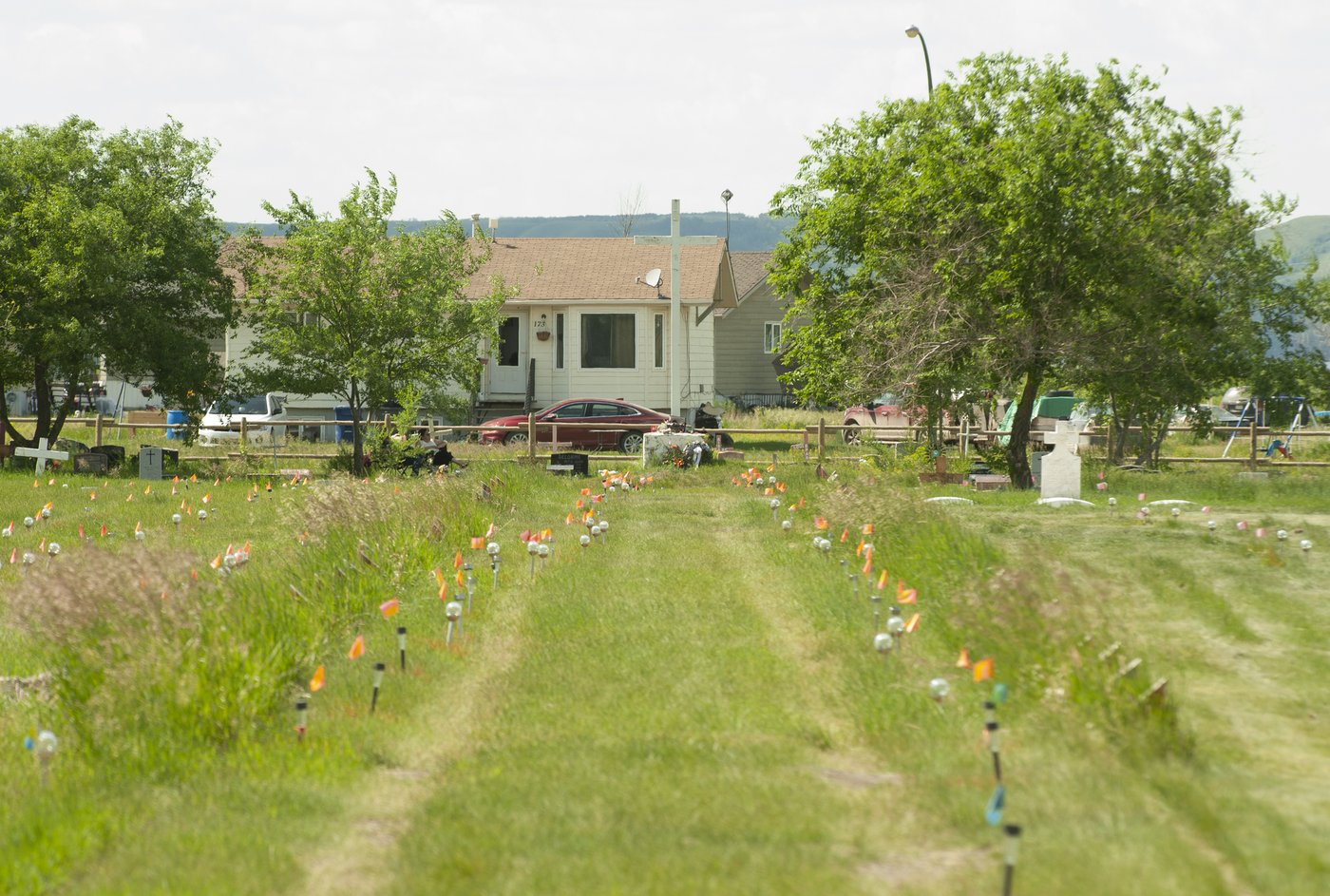The National Centre for Truth and Reconciliation says there are many problems with a $2 million contract Ottawa recently signed with an international group to get its advice on unmarked graves.
The centre says it is “deeply concerned” with the decision by Crown-Indigenous Relations and Northern Affairs Canada to hire a Netherlands-based organization to launch “an extremely sensitive engagement process” on issues surrounding possible gravesites near former residential schools.
“Beginning with the Truth and Reconciliation Commission of Canada, there has been a clear understanding that any work related to the harms caused by the residential school system must be led by Indigenous Peoples and that survivors must be at the heart of this work,” Cynthia Wesley-Esquimaux, who chairs the centre’s governing circle, said in a statement on Monday.
“Putting the planned engagement process in the hands of a non-Indigenous (organization) is a misstep, and a very worrying one at that.”
The federal government recently announced it had hired the International Commission on Missing Persons to provide it with advice surrounding unmarked graves. Before it supplies a final report, the commission plans to conduct an outreach campaign with communities that signalled an interest in hearing about options around DNA analysis and other forensic techniques.
While Ottawa says it hired the commission because some communities are looking for options and that it has a mandate to assist their searches, the centre and other advocates say the work around unmarked graves must happen independent of the federal government, since it funded the church-run residential school system in the first place.
Last week, the commission released a copy of the technical agreement it signed with the government in January, confirming that its final report will be due by mid-June. Federal officials will be allowed to comment on drafts of the report and be present for meetings related to the group’s work, the agreement says.
The agreement itself also states Indigenous facilitators will be hired to be present at the discussions and meet the “spiritual and ceremonial” needs of participants throughout the process.
Stephanie Scott, executive director of the National Centre for Truth and Reconciliation, says the agreement itself raises more questions.
The centre provided a list of where it says the agreement falls short and risks causing further harm to Indigenous communities and survivors.
Among its concerns are that the contract does not say the commission’s work needs to take place in a trauma-informed way, and that it fails to recognize the central role residential school survivors must play.
Even more egregiously, the centre suggests, is the appearance that the work Ottawa is contracting out overlaps with Indigenous-led efforts that are already underway. This “implies a purposeful undermining of their work,” the centre’s statement said.
The agreement does not mention the need to work with the national advisory committee the government has already tasked to explore the issues around unmarked graves and missing children, the centre says. Nor does it mention the special independent interlocuter, Kimberly Murray, who was also appointed to work on the matter.
Eugene Arcand, who sits as a member of the truth and reconciliation centre’s survivors’ circle, says he cannot understand why Ottawa would look to an international group that lacks the knowledge of the residential school system and “cultural competency” needed for such sensitive discussions.
The centre says it has already raised concerns with Crown-Indigenous Relations Minister Marc Miller and plans to make more recommendations.
In a brief statement Monday, Miler’s office said the agreement is subject to amendments to be “jointly considered” by federal officials and the international commission. The commission has not yet responded to requests for comment.
This report by The Canadian Press was first published Feb. 20, 2023.
Related


































